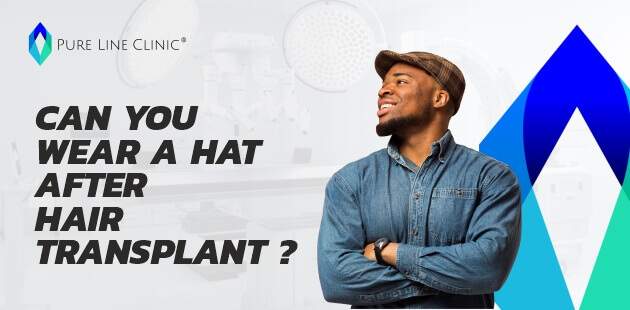
Hair Transplant Trypophobia
After hair transplantation, there are visible changes on the scalp of the people. Problems such as regional redness, clarification of hair follicles, crusting, and shedding of transplanted hair may occur. The resulting image creates a feeling of serious discomfort in some people.
Underneath this feeling is a type of phobia called "Trypophobia". Trypophobia is a type of fear of holes, cracks, or cavities. Although its relationship with hair transplantation may seem strange at first, it is a common phobia. Trypophobia is a physiological reaction of the person depending on his fear or perceiving an event as a threat.
What is Hair Transplant Trypophobia?
Hair transplant Trypophobia is first revealed to observe the changes in the scalp of people who have had hair transplants. These people also have Trypophobia in their daily lives. Perceiving pits that are close to each other as a possible threat can create tension in people. Another symptom is nausea. People with severe Trypophobia may also experience vomiting symptoms.
Pure Line Clinic ® enlightens its patients on this subject in the light of professional practices. People who show symptoms of Trypophobia during the preliminary interview can consult hair transplant specialists about this issue. Fear, disgust, chills, nausea, itchy skin, sweating, heart palpitations, dizziness, or a desire to avoid the situation may occur due to Trypophobia. People who will be applied with hair transplant specialists at Pure Line Clinic ® should share their symptoms with hair transplant specialists.
What Causes Trypophobia?
The underlying cause of Trypophobia is unknown. However, there are some theories put forward by experts. According to the findings within the scope of previous studies, the skins of animals with deadly venoms, such as snakes and blue-eyed octopuses, are in the consciousness of people. The perception of these animals as a threat to life reveals this phobia.
In today's data, circular images of current diseases such as chickenpox, measles, ticks, or scabies trigger phobia. The circular disturbances created by these situations create the impression that a bad situation has occurred in people. A similar situation emerges in the hair follicle structure, which is exposed as a result of hair transplantation Trypophobia. People may perceive the exposed image as a threat.
In What Other Situations Can Trypophobia Occur?
Trypophobia is not specifically fear of hair transplant. A feeling of tension, nausea, or fear may also occur in other events with similar perforated images in people. The following cases can trigger Trypophobia.
- Sponges used for cleaning kitchens
- Soap or shampoo foams
- Coral or other perforated sea creatures
- Honeycomb and bee hive
- Air bubbles on the water
- Vegetables and fruits consisting of circular clusters such as strawberries, pomegranates, and corn
- Blisters on the skin
How is Hair Transplant Trypophobia Treated?
Trypophobia is a condition that affects daily life. Having a phobia makes the treatment process difficult. For Trypophobia, people need psychological support. Since it is an irrational fear, it is a long-term process to overcome the phobia. In advanced cases, methods such as psychotherapy and hypnosis can be applied. Pure Line Clinic ® provides the necessary guidance for people who want to overcome their hair transplant Trypophobia. In this way, after hair transplantation, people are minimally disturbed by the current image.
If this situation occurs for a patient who will have hair transplantation, he or she should get professional support at this point. This unrealistic thought pattern can be reduced or passed through psychotherapy practices.

Is a hair transplant right for you?
The perfect candidate for hair restoration surgery has solid hair on the sides and back of the head. These sites are used as donor areas for the grafts.

Is Hair Transplant Safe?
In general, a hair transplant is a safe surgery, however like with any surgical process, there is always a tiny risk of: bleeding. infection. a hypersensitivity to the anesthetic.

Can Stress Cause Hair Loss ?
The quick answer is that stress can cause to hair loss. Telogen effluvium, alopecia areata, and trichotillomania are three kinds of hair loss that can be induced (or made worse) by stress. Stress-related hair loss is usually transient, so you

Does Minoxidil Work?
Minoxidil is readily absorbed and begins to operate almost immediately to enhance blood circulation in your scalp and speed up your natural hair growth cycle.

Hair Transplant for Women
Ladies can also go through hair transplantation at the Pure Line Clinic ®. It is usually possible to have a hair transplant without shaving.

Does Finasteride Regrow Hair ?
Finasteride can be used to regrow hair and has been found in clinical trials to be useful in enhancing hair growth. According to one study, 66% of males saw an increase in hair growth after taking Finasteride for two years.

Is Hair Transplant Painful?
Hair restoration surgery is a surgical treatment. Consequently, you would anticipate some degree of pain during the operation. Nonetheless, the unique Puresoft ® system makes even the most contemporary procedures painless.

Shock Hair Loss After Hair Transplant
Shock hair loss occurs between the second and eighth weeks after a hair transplant surgery. At the point when your new hair enters a resting stage, the hair is shed.

Alopecia Risk Factors and What to do Them
Alopecia is not always caused by genetics, although people with a family history of alopecia are at a higher risk of acquiring some kind of alopecia.

Can You Wear a Hat After Hair Transplant?
Most of specialists will advise you to hold off wearing a hat or cap for at least ten days. Your transplanted grafts must root in the balding areas for 7–10 days.

FUE Hair Transplant Planning and Expectations
Setting realistic expectations is beneficial for all surgeries. Knowing what to expect after FUE hair transplants will be extremely beneficial.

Is It Possible to Regrow Hair on Bald Spots?
Have you recently spotted a bald spot on your head? Are you concerned that the spot will develop and cause you to go bald? Do you try to hide it with a typical comb-over? Do you want to know how to recover hair on a bald head?

After a Hair Transplantation Procedure
Patients need to pay attention to many issues to get the best result in the post-hair transplant process.

FUE vs FUT, Which is Better Hair Transplant Method ?
FUE Hair Transplant method, which has increased its popularity recently, is the most used hair transplant method in Turkey. Both methods have different advantages.

Is Hair Transplant Permanent?
A hair transplant produces clearly long-lasting, permanent outcomes.There are some situations that need attention.